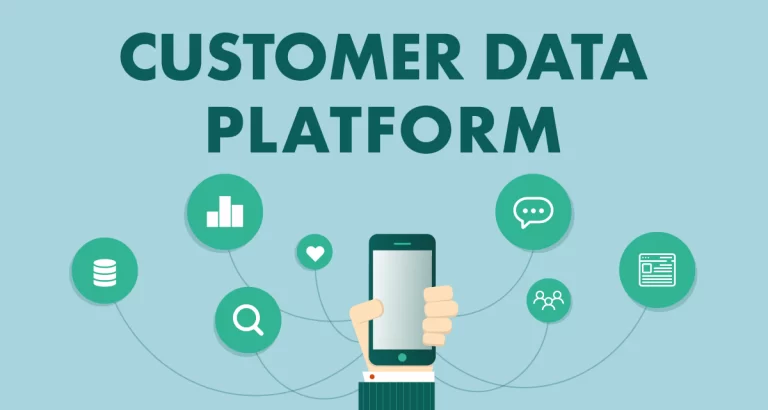Top 7 Digital Marketing Tips to Boost Your E-Commerce Business

Are you looking to make your e-commerce business stand out in an ever-expanding world of digital marketing? If so, then this blog post is for you! Here we will be discussing the top seven tips to boost your e-commerce business and get maximum exposure. So if you’re ready to take your e-commerce business promotion journey further, join us now!
Table of Contents
1. Define your marketing goals and objectives
Defining your marketing goals and objectives is crucial in building a successful e-commerce strategy. Without a clear understanding of what you want to achieve, it’s hard to measure and adjust your efforts along the way.
Your goals might include increasing sales, improving customer retention, reaching a new audience, or launching a product line. Whatever your aims are, make sure they are specific, measurable, and relevant to your overall strategy.
Once you have your goals defined, you can start outlining specific tactics to achieve them, whether that’s through social media campaigns, email marketing, or other channels. By keeping your focus on your objectives, you’ll be able to stay on track and ensure that every effort is moving you closer to success.
2. Optimize your website for maximum conversions.
Having a website is a must for any business. But having a website that is just visually appealing is not enough to generate conversions. To truly optimize your website for maximum conversions, you need to focus on user experience and functionality.
This involves creating clear and intuitive navigation, ensuring fast page loading times, utilizing eye-catching graphics, and having a persuasive call to action. This may all sound like a lot of work, but a Shopify development agency can help you achieve your goals. With a little help from professionals, you can transform your website into a powerful sales machine, ensuring that you reach your target audience and maximize your conversion rates.
3. Develop a clear customer persona
Creating a customer persona involves gathering data and insights about your existing customers, conducting market research, and analyzing trends in your industry. This information helps you identify common demographics, behaviors, motivations, and pain points among your customers.
With a well-defined customer persona, you can craft targeted messaging, create relevant content, and design user-friendly interfaces that resonate with your ideal customers. By aligning your business decisions with the characteristics of your customer persona, you can enhance customer satisfaction, increase engagement, and drive conversions.
Ultimately, a clear customer persona enables you to build stronger relationships with your target audience and establish a competitive edge in the dynamic e-commerce landscape.
Create engaging content
Creating engaging content is important to guide customers through each stage of the buyer’s journey. From awareness to consideration and ultimately, the decision to make a purchase, creating compelling content is crucial.
For example, in the awareness stage, customers may not yet be familiar with your brand or product, so it is important to provide informative content that introduces your brand and establishes its credibility. In the consideration stage, customers may be comparing your products to similar ones on the market, so it’s important to highlight the unique features and benefits of your product.
Lastly, in the decision stage, customers may need that final push to make the purchase, so providing testimonials and social proof can be incredibly effective. By creating engaging content for each stage of the buyer’s journey, you can ensure that customers are guided toward making a purchase and becoming loyal patrons of your brand.
Utilize digital advertising platforms
Utilizing digital advertising platforms is an effective way to reach your intended audience with a message that cuts through the noise. With the ability to gather data on consumer behavior and demographics, digital advertising allows you to ensure that your ads are only being shown to those who are most likely to take action.
From social media ads to search engine marketing, these platforms offer a plethora of targeting options to connect you with your ideal customer. By investing in digital advertising, you’re not only increasing your reach but also your chances of driving conversions and boosting your bottom line.
Leverage social media to build relationships with customers
E-commerce businesses have recognized the immense potential of social media in building meaningful relationships with customers. Leveraging social media platforms such as Facebook, Instagram, Twitter, and LinkedIn, businesses can establish a direct and interactive channel to engage with their target audience.
By consistently creating compelling and relevant content, businesses can foster a sense of community and loyalty among customers, encouraging them to actively participate in discussions, provide feedback, and share their experiences.
Furthermore, social media offers the opportunity to personalize interactions, respond to customer inquiries promptly, and address concerns transparently. Through social media, e-commerce businesses can gain valuable insights into customer preferences, behaviors, and trends, allowing them to tailor their offerings and improve the overall customer experience.
By effectively employing social media strategy, businesses can cultivate long-lasting relationships, enhance brand reputation, and ultimately drive sales and growth in the competitive e-commerce landscape.
Utilize Automation to Streamline Business Processes
Automation is a great way to streamline your business processes and free up time for other tasks. Automation can be used in various areas of your e-commerce business, such as inventory management, order processing, customer service, marketing campaigns, and more.
By leveraging automation, you can save time and money while also increasing efficiency. Automation tools can help you identify inefficiencies in your processes, automate mundane tasks, increase employee productivity, and optimize customer service. Investing in automation will give your business a competitive edge and put you on the path to success.
There are many different tactics that businesses can use to increase their sales and drive conversions. From developing a clear customer persona and crafting engaging content to utilizing digital advertising platforms and optimizing your website for maximum conversions, these strategies have the potential to help you reach more customers and build strong relationships with them. Moreover, leveraging automation tools can streamline business processes so you can focus on other areas of growth. With careful planning and execution, any e-commerce store has the potential to become successful in its own right!







